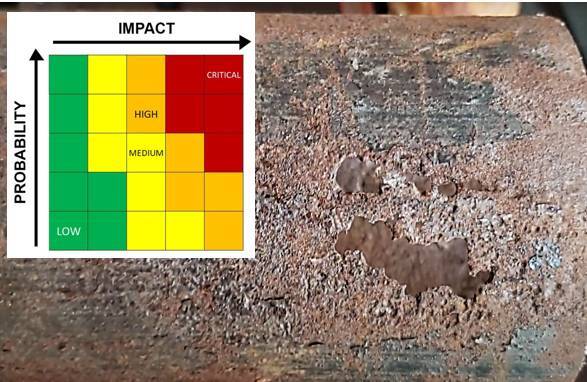Asset Corrosion Management in Oil & Gas Industry
Asset Corrosion Management Training Course
Course Description
Corrosion is one of the most critical integrity threats across oil, gas, and industrial sectors. Traditional corrosion control methods, based solely on corrosion engineering, often fail to deliver comprehensive protection. In the early 2000s, the UK Offshore Industry revealed that engineering alone could not efficiently mitigate corrosion. This led to the development of corrosion management (CM) — a modern, holistic approach to asset integrity management.
Our Asset Corrosion Management Training Course equips professionals with the knowledge and tools to implement CM strategies effectively. Unlike traditional corrosion engineering, corrosion management provides broader options for root cause identification, troubleshooting, and long‑term asset protection. Understanding how CM works, how it is applied across assets, and the benefits it delivers is essential for engineers, managers, and integrity specialists.
📚 Asset Corrosion Management Course Syllabus
Day One: Fundamentals of Corrosion and Asset Integrity
- Introduction & Pre‑Course Assessment
- Root Causes of Corrosion in Industry
- Asset Integrity Management Systems (AIMS): Components, Objectives & Benefits
- Corrosion Engineering in Oil & Gas
- Typical Upstream Corrosion Damage Mechanisms
- International Corrosion Management Models
- Defining the CM Concept
Day Two: Implementing Corrosion Management
- Integrity Review Process
- Performance Monitoring & Effectiveness Assessment
- CM Process Implementation
- Introduction to Risk‑Based Inspection (RBI) as per API 581
- Inspection & Risk Basics
- Corrosion Loops & Process Flow Diagrams
Day Three: Management Requirements
- 12 Key Management Requirements
- Registers, Strategies & Procedures
- Databases, Documentation & Data Management
- Communication Significance
- Asset Corrosion Management Strategy Document
- Corrosion Control Matrices & KPIs
- Team Roles & Competency Development
Day Four: Addressing Shortcomings & Advanced CM
- Common Corrosion Management Shortcomings
- Corrosion Failure Pre‑emption
- Cost Optimization Strategies
- CM Audits & Change Management
- Anomaly Management
Day Five: Benefits & Recommendations
- Leak Registers & Failure Investigations
- Benefits of CM Applications
- Recommendations for Optimized Implementation
- Key Conclusions & Recommendations
- Post‑Course Assessment
🎯 Asset Corrosion Management Training Objectives
- Understand what corrosion management is — and what it is not
- Distinguish between corrosion engineering (CE) and corrosion management (CM)
- Compare traditional integrity management with modern CM approaches
- Learn how CM is implemented across assets
- Explore international case studies and best practices
- Optimize corrosion costs while improving asset reliability
Register your interest in the course
🌟 Course Benefits
- Enhanced personnel safety & environmental protection
- Increased asset uptime & operational life
- Improved communication, reporting, and troubleshooting
- Optimized corrosion costs
- Greater ability to pre‑empt corrosion failures
- Reduced number of corrosion incidents
📈 What You’ll Learn
- Differentiate between CE and CM concepts
- Apply CM for more efficient asset integrity management
- Build corrosion failure pre‑emption capability
- Use engineering tools (design, materials, coatings, CP) more effectively
- Develop integrity windows and corrosion KPIs
- Optimize corrosion costs for long‑term sustainability

Course Schedule
Asset Corrosion Management
To Be Confirmed
* The Course will be in-person and will be held in Kingston Upon Thames, London
Course Price
Asset Corrosion Management
Regular Fee : £1499.99 (Excluded VAT)
Dicounted Fee (*): £1299.99 (Excluded VAT)
*Discounted price is applicable to early bird registration ( At least 3 weeks before the course start date), group of 3 or more people, and PhD students.
🚀 Call to Action with Early Bird Offer
Don’t miss out on our Early Bird Registration Discount! Secure your place in the Asset Corrosion Management Training today and enjoy exclusive savings. Register now to guarantee your seat and take advantage of reduced fees before the deadline
